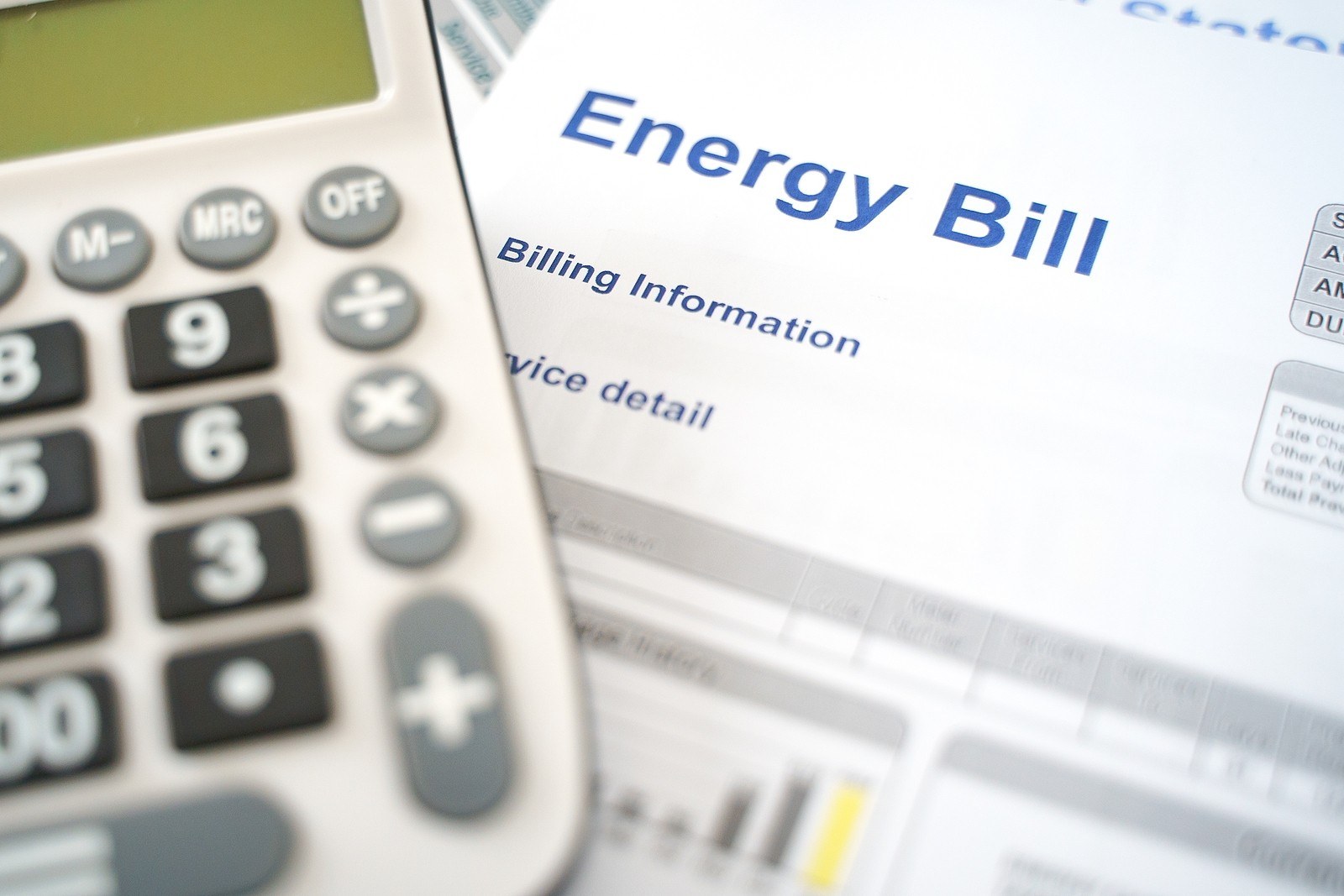
Living in a home without an effective air conditioning unit for the space can make Pennsylvania summers unbearable. Although window AC units are easy to find and don’t require a significant upfront investment, they can be limited in functionality, and are less efficient than other air conditioners, costing you extra money over time. Additionally, they are often accompanied by loud and intrusive noise, take longer to sufficiently cool larger areas, and have to be moved come wintertime.
Alternatives to window air conditioner units can be difficult to navigate and vary depending upon the size and flexibility of your space. Whether your home is small or large, it’s important to understand the best window AC alternative that fits your specific needs.
Alternatives to window air conditioners in small, historical houses
Small, historical houses including twin homes, row homes, and townhouses, often have thick, plaster or stone walls that make the installation of certain air conditioning systems difficult. Due to their structure and how difficult it would be to cut or drill into them, certain systems would require a more invasive installation process. To avoid this, we recommend upgrading to a system that is far less complex to install, such as ductless mini splits or high velocity systems.
Ductless Mini Splits
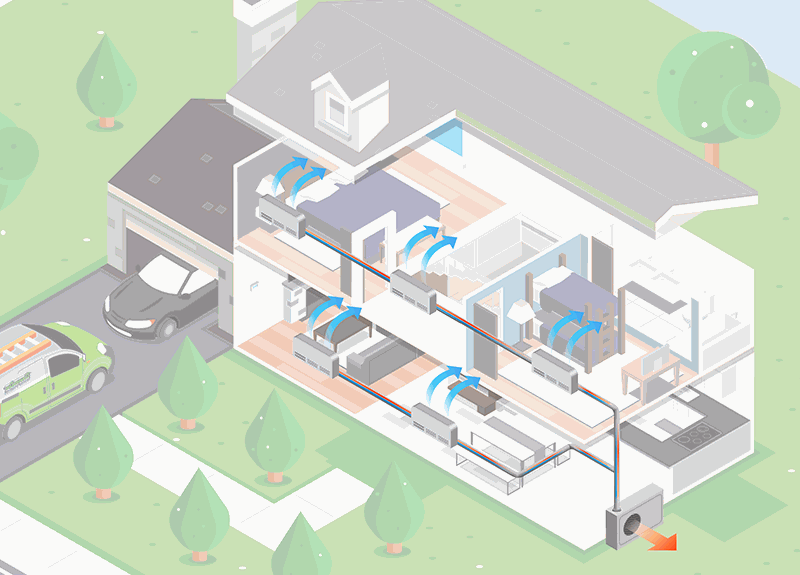
Ductless mini splits are a great alternative to window AC units, especially in homes that are older and do not have existing ductwork. Though they come at a higher price point, they offer both AC cooling and heating, allowing you to operate the system during the winter at temperatures as low as -5 degrees.
Ductless systems offer significant energy-efficiency and environmental impacts without additional effort. Whether you have one or several installed, you can easily control them via remote control or straight from your smartphone or tablet. Additionally, if you invest in a higher end system, they have sensors that can turn on/off when someone is in a room, and fluctuate in temperature depending on the number of people present.
Compared to other AC alternatives, a ductless system comes at a lower initial cost, and is priced out based on each individual unit, making it flexible per your budget.
High Velocity Systems
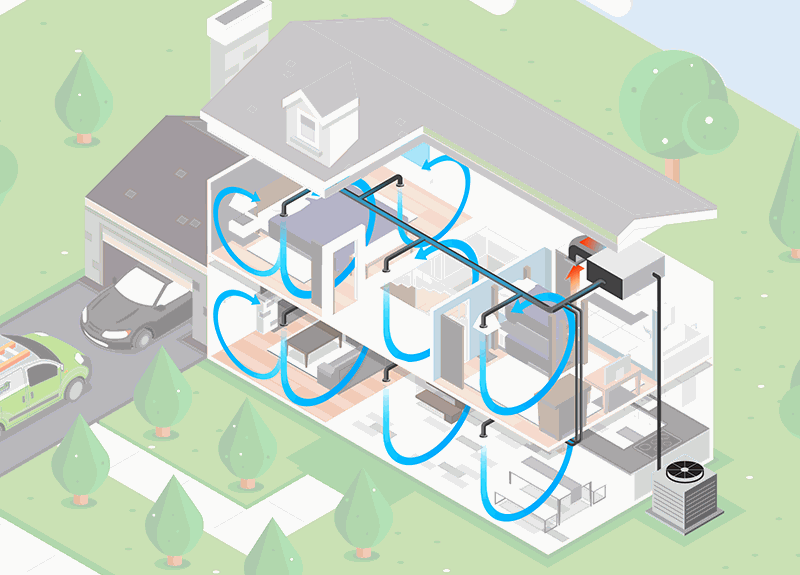
Similar to ductless systems, high velocity systems are great for smaller homes without existing ductwork and don’t require invasive installation. Additionally, high velocity systems run more quietly because of their lower energy use and smaller duct system, making them less intrusive throughout the day and night than a window air conditioning unit.
In terms of their energy efficiency and environmental impact, high velocity systems reach preferred temperatures much faster than conventional systems, eliminating hot spots and humidity quicker and more efficiently, in terms of energy.
The upfront cost of a new high velocity system is substantial, however, there are a number of rebates and incentives available, and the long term cost-savings from increased efficiency will make the investment worth it in the long run.
Alternatives to window air conditioners in larger homes
Larger homes with less intricate framing and more flexible space have the option to opt for a system that requires a more invasive installation process, such as traditional central air conditioning, or electric heat pumps. Additionally, larger homes that already have a forced air heat system, can easily have an AC coil added on to the existing one with an outdoor condenser for cooling
Traditional Central Air Conditioning
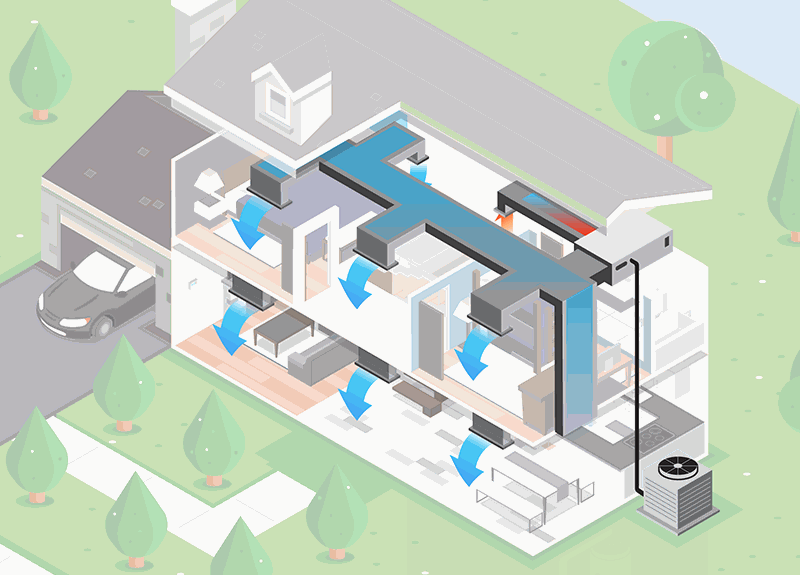
Traditional central air conditioning is often the best choice if you’re looking for total comfort cooling through just one system. Central air conditioners are installed through a simple and efficient ductwork and returns system that facilitates even airflow throughout the home. This kind of system can be installed alongside existing forced air heating systems, allowing for a more unified home cooling and heating set-up.
To extend their life and increase the efficiency of your central air conditioning, it’s important to schedule regular maintenance and tune ups, ensuring you get the most out of your investment. Additionally, you can install a smart thermostat, which is simple to use and once properly installed, can lead to additional energy efficiency and cost savings.
The cost of installation is variable depending on the size of your home, but ranges between $9k to $15k for a standalone AC condenser, and the addition of an AC coil and condenser ranges between $7k to $12k. To offset these costs, consider delving into manufacturer rebate options which are available throughout the year.
Electric Heat Pumps
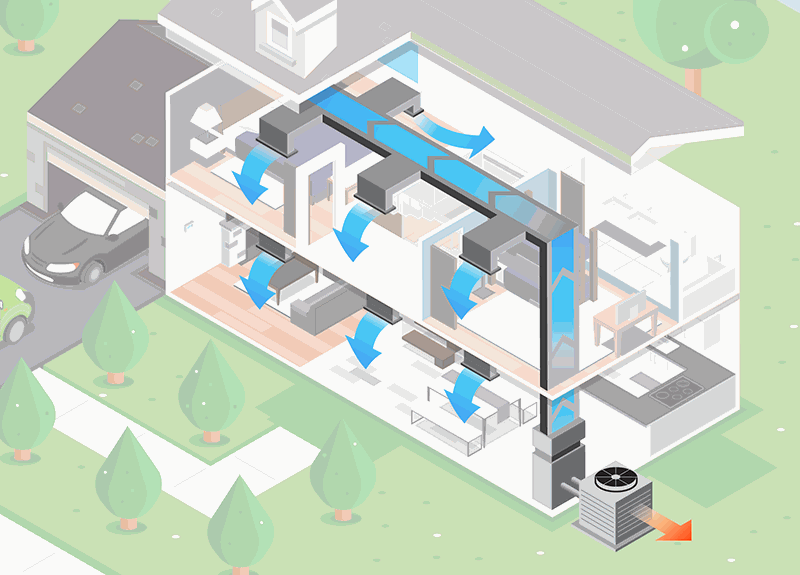
Electric heat pumps are not only a great alternative to window AC units, but also provide heating for year-round comfort. Depending upon your home’s unique needs, they can be installed through forced air ductwork, ductless units, or combined, and have ductless air handlers that are either wall mounted or ceiling cassettes. And finally, to add to their flexibility, water heaters can be installed to run off of them ensuring that your water is warm when you need it.
The ductless version of electric heat pumps tend to be more energy efficient because you can control each room of the house individually, however, overall they result in significantly more savings compared to fossil fuels.
Due to their ability to provide cooling and heating, electric heat pumps can save you money by not having to buy a secondary system. Additionally, as a part of the 2023 Inflation Reduction Act, qualifying homeowners have the opportunity to receive tax credit on the installation of a new system, helping to offshoot the costs.
Despite being an easy way to keep your home cool, window air conditioners don’t have long-term benefits. Replacing your system with one that is higher in efficiency can increase the value of your home, save you money, and make a positive impact on the environment. Regardless of the size and complexity of your home, there are plenty of alternative energy-efficient cooling systems to choose from.
Learn more about the different home cooling systems and which one is best for your home.
Ready to upgrade your air conditioning system?
Click below to get started.



